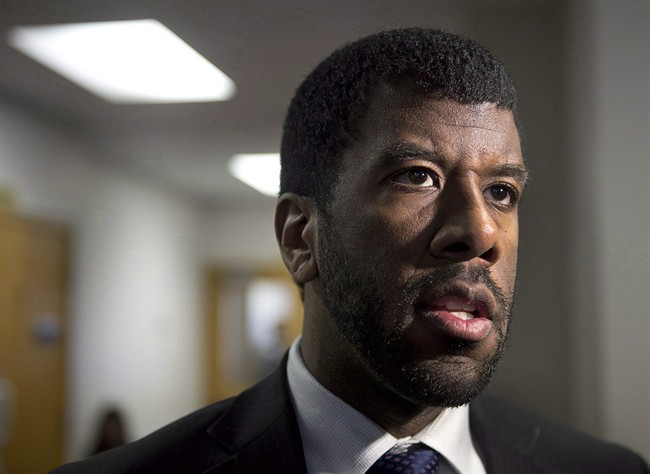A Nova Scotia lawyer has been found guilty of professional misconduct and professional incompetence by a disciplinary panel of the province’s barristers’ society.

The decision, delivered on Monday, found Lyle Howe had misrepresented himself to the court on multiple occasions while also being “deliberately dishonest” to three separate judges.
At times, Howe is believed to have incorrectly advised judges that he was available to attend court when he wasn’t able to, and told a judge he was “compelled” to testify at a certain time when that was not true.
The panel also found that he did not provide clients with relevant or complete information in regards to their case.
It’s not immediately clear what punishment Howe could face as a result of the panel’s decision.
The most serious could be disbarment or the loss of his licence to practice law.
READ MORE: Police investigating alleged breach of publication ban in Lyle Howe case
Throughout the hearing, Howe alleged systemic racial bias in the legal community at large and in the barristers’ society’s decision to hold the disciplinary process.
Howe, who is black, alleged that his rights under s.15 of the Charter of Rights and Freedoms were violated due to the discriminatory manner in which the society interacted with him.
Under the Charter, everyone is equal under the law without discrimination based on “race, national or ethnic origin, colour, religion, sex, age or mental or physical disability.”
Claims of racial bias
The three-person panel did agree that Howe had experienced situations where race was a factor in decisions that affected him.
“These decisions were sometimes made by an individual and sometimes by institutional players,” reads the decision.
In particular, the panel singled out Michelle James, a Crown Attorney in the Dartmouth office of the public prosecution service as having treated Howe differently than other lawyers.
The two had issues between 2011 and 2013, culminating in an incident where she cursed at him in front of a Crown witness.
READ MORE: Nova Scotia Crown withdraws sex-assault case against lawyer Lyle Howe
The panel found that Howe was placed under “closer scrutiny than that of his peers” due in part to James’ interaction with Howe.
The panel also took the Dartmouth office of the public prosecution service to task for a policy enacted shortly after Howe was charged with sexual assault — a charge that was later withdrawn.
According to the decision, the policy forced Howe to be escorted to their office when meeting with Crown attorneys and allowed for female Crown attorneys to not have to meet with Howe alone. Conflicting testimony did not make it clear how explicitly the policy was enforced or who created it.
However, the panel dismissed the larger issue of systemic issues based off of Howe’s race.
“(Howe) has not proven a material violation of s.15 of the Charter in relation to the investigation or prosecution of these complaints,” reads the decision.
The hearing lasted 66 days, spanning nearly a year and a half.
According to the decision, that is the longest disciplinary hearing in the history of the Nova Scotia Barristers’ Society.




Comments